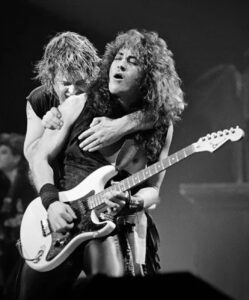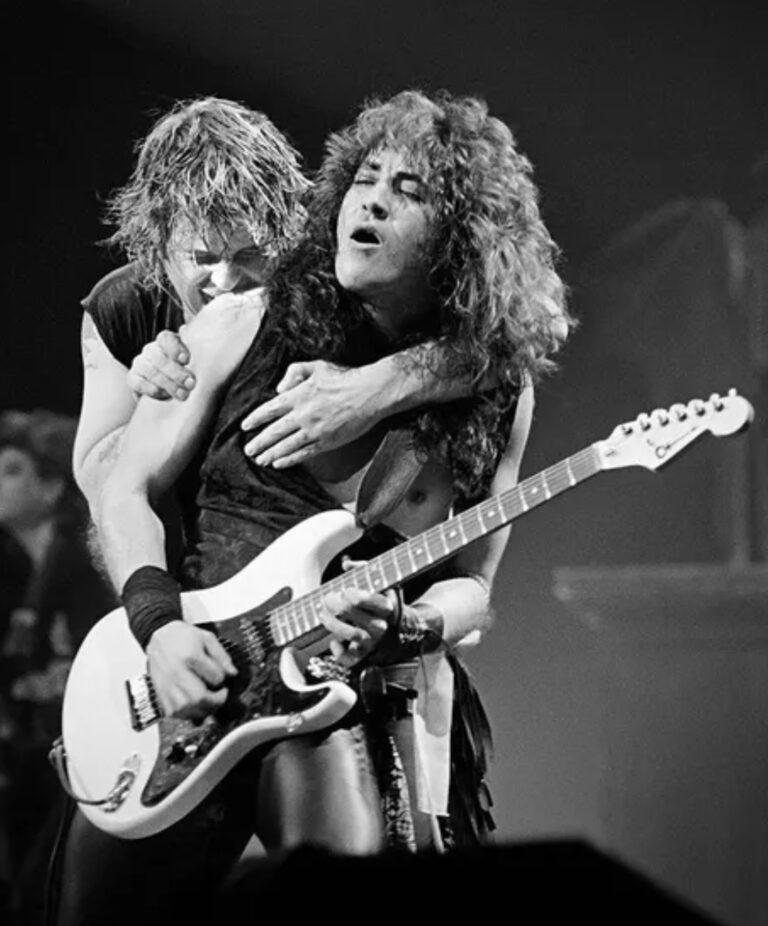In a night that etched itself into heavy metal history, Black Sabbath bid a thunderous farewell at Villa Park with the star-studded extravaganza Back to the Beginning on July 5. But amid the roars of 40,000 fans and the blistering sets from Metallica, Pantera, and Slayer, one guitarist’s improbable return stole the spotlight: Jake E. Lee, the former Ozzy Osbourne axeman who battled a near-fatal shooting and crippling arthritis to honor his old boss and idol Tony Iommi.
Lee, 67, stepped onto the hallowed stage for the first time in nearly four decades alongside Ozzy, delivering searing takes on Sabbath classics like “War Pigs” and Ozzy-era staples. His performance wasn’t just a nostalgic nod—it was a testament to resilience, closing a chapter on a rift with Osbourne that had lingered since Lee’s abrupt 1987 exit from the band. “Mending that with Ozzy meant the most,” Lee later reflected in a candid interview with Guitar World, his voice steady despite the fresh scars of survival.
The road to Birmingham was anything but smooth. Just months earlier, in October 2024, Lee was walking his dog Coco near his Las Vegas home when a random shooter unleashed a hail of bullets, striking him multiple times. The attack shattered a rib, punctured a lung, and left his left arm severely injured—complications that compounded his long-standing arthritis in his right hand, where cartilage has worn perilously thin. Doctors warned the rock veteran that even picking up a guitar might be out of the question, let alone shredding Iommi’s iconic riffs under the lights.
Yet Lee’s story is one of unyielding grit, a trait forged in the chaotic forge of 1980s metal. He joined Osbourne’s band in 1983, stepping into the colossal shadow of the late Randy Rhoads while tasked with channeling Black Sabbath’s doom-laden essence. “I wasn’t just filling Randy’s shoes; I also was covering some of Tony Iommi’s most iconic riffs and solos,” Lee recalled. Emulating Rhoads’ neoclassical fireworks was one thing, but Iommi’s “evil” tonality? That was another beast entirely.
“It just sounds evil,” Lee said of Iommi’s playing, marveling at the Sabbath founder’s subtle pitch-bending wizardry. “He bends so it’s not quite in pitch. It just made it sound so much better. There are things like that that I found challenging. Where did he come up with all those riffs? It’s not human. It’s unfathomable how he just kept coming up with riffs!” For Lee, Iommi’s riff machine represented the pinnacle of guitar heroism—harder to replicate than Rhoads’ virtuoso flair, and a lifelong inspiration that guided his setup even on the eve of the show. “Every time I’m trying to set my stuff up to get the sound right, I play ‘War Pigs.’ If I can sound anything close to what he sounded like on that, I’m going with it.”
The invitation to Back to the Beginning came not from Osbourne directly, but from Rage Against the Machine’s Tom Morello, the event’s musical director. Morello, who orchestrated the all-day blowout featuring supergroups with Billy Corgan, Steven Tyler, and Travis Barker, insisted Lee’s presence was non-negotiable. “Tom called me. He said, ‘There’s going to be a thing, an original Sabbath performance and Ozzy Osbourne’s final performance. I can’t see this going on without Jake E. Lee,’” the guitarist shared. It was a full-circle moment, especially poignant after years of silence with Osbourne. Lee’s last text from the Prince of Darkness, received en route home from an airport gig, read like a peace offering: words of reconciliation that eased old wounds.
Rehearsals tested Lee’s limits. Doubts swirled over whether he could tackle his signature Ozzy track, “Bark at the Moon”—the blistering hit from his 1983 debut album with the band. “With my wrist, the arthritis and everything, that would be very challenging,” he admitted months before the show. But Lee adapted, tweaking his gear and technique to accommodate the pain. Onstage, he powered through, joining a supergroup rotation that included Lzzy Hale, Nuno Bettencourt, and Disturbed’s David Draiman for Sabbath deep cuts like “Symptom of the Universe” and Osbourne anthems. Fans erupted as Lee locked in with original Sabbath drummer Bill Ward and bassist Geezer Butler, bridging eras in a sea of distortion and down-tuned fury.
The shooting’s aftermath had plunged Lee into a “dark and dangerous” haze, as he described it—a stark contrast to the wild, substance-fueled escapades of his Ozzy days. He regaled interviewers with a tale from a 1980s gig: midway through “War Pigs,” Osbourne locked eyes with him, mouthing, ‘What are the words?’ Lee’s deadpan reply? ‘I don’t know.’ Undeterred, the singer ad-libbed “Old MacDonald Had a Farm,” turning chaos into comedy. “We were doing War Pigs… Ozzy looks at me and mouths, ‘What are the words?’ I said, ‘I don’t know.’ So he started singing Old MacDonald Had a Farm,” Lee laughed, encapsulating the unpredictable magic of their partnership.
Osbourne, ever the survivor himself amid health battles, reacted swiftly to Lee’s shooting last year, calling it “another senseless act of gun violence.” Their reunion at Villa Park felt like destiny, with the original Sabbath lineup—Ozzy, Iommi, Butler, and Ward—closing the night on a high note of catharsis. “This was Ozzy’s night – but it was also a tribute to Tony Iommi’s singular impact on guitar music,” Lee noted.
As the echoes of Back to the Beginning fade, Lee eyes a quieter horizon: more recovery, perhaps a Badlands revival, but always with Iommi’s spirit as his north star. “Tony Iommi is my greatest inspiration,” he affirmed. In a genre built on defiance, Jake E. Lee’s encore was the ultimate riff on resilience—proving that even bullets and bent notes can’t silence a legend.
